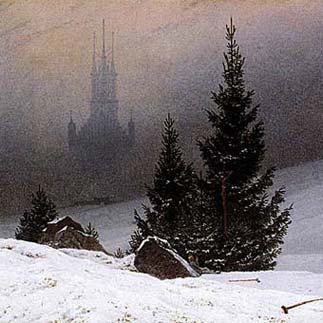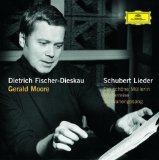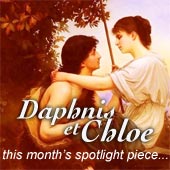Franz Schubert's Songs
600+ Delightful Tunes
There are over 600 Franz Schubert songs, which the composer penned in his short life. Schubert was a master of the genre.
The "proper" name for the Franz Schubert songs is actually lieder, which is just the German word for song. It describes this particular type of classical art song, which has a singer accompanied by piano.
Schubert had a huge impact on the lieder genre. Before him, classical lieder were quite similar to folk songs, and not taken that seriously.
But Schubert developed lieder so that they had a powerful dramatic impact on listeners, and would be taken seriously as a genre of music.
Popular Schubert Songs
There are too many Franz Schubert songs to list, so here are the most important ones. I've added the Deutsch number, which musicologists use to catalog all of Schubert's pieces by composition date.- Gretchen am Spinnrade (Gretchen at the Spinning Wheel), D118. The first song which got Schubert noticed by musical society. He wrote this when he was just 17 years old! The lyrics are from a song in Goethe's Faust.
- Heidenroeslein (Wild Rose), D257. A pretty little piece, from a text by Goethe. It sounds almost like a German folksong. It has a simple charm which reminds me of the countryside.
- Der Erlkoenig (The Erlking), D328. This was Schubert's first published piece, and is extremely well-known. The text is a dark and supernatural poem by Goethe, with four characters.
Schubert cleverly uses different vocal ranges and melodies to get one singer to play all four characters.
- Der Tod und das Maedchen (Death and the Maiden), D531. A gloomy and depressing piece. The short text is about Death trying to claim a young woman.
It has two obvious parts: one to represent the Maiden, which has agitated music, and a very sombre section which is Death's music.
- An die Musik (To Music), D547. A cozy-sounding little song, which praises the art of music. It's one of Schubert's most popular art songs.
- Die Forelle (The Trout), D550. A very happy-sounding piece. This, to me, is typical Schubert: a simple and cheery melody, with colorful piano accompaniment which conjures up images of a splashing fish.
Schubert recycled the melody in this song for the 4th movement of his famous Trout Quintet.
- Die Schoene Muellerin (The Beautiful Miller's Daughter), D795. A lovely pastoral cycle of 20 songs, each one a little gem.
The cycle tells a story of love, madness, and suicide, using captivating melodies and beautiful, illustrative piano music.
- Ave Maria (proper name Ellens dritter Gesang), D839. A setting of a song from a Walter Scott poem. I'm actually not that fond of this piece, but it's quite popular with most listeners!
- Winterreise (Winter Journey) D911. Another song cycle, this time with 24 songs and a more mature sound.
Schubert was very close to death when he composed this, and bleak feelings of doom are in this entire cycle.
I didn't realize how cold and depressing the lyrics were until I looked at the English translations. The sadness is astonishing.
- Schwanengesang (Swan Song), D957. Schubert's third and last song cycle. It has some of the composer's most dramatic and chilling music. This one is different from the first two since it uses poems from two different poets.
It's obvious Schubert had grown immensely as a composer by the time he wrote this.
We don't know if the cycle is complete, or even if Schubert wanted these songs as a cycle, since it was published after he died. It also has what some people see as the last Franz Schubert song (Taubenpost).

Click to read about the charming Trout Quintet

Click to listen to and explore Schubert's beautiful Schwanengesang
The moods of Schubert's songs usually reflect what was happening in his life at the time. Since he wrote music so quickly, it's a bit like each song is a snapshot of his emotions!
Schubert's style is very colorful. He managed to make the piano almost play a character in itself.
A lot of Schubert's songs are composed in a strophic form. This means that he repeats a certain passage of music several time, but the lyrics change in each repetition.
For an example, have a look at the video for "Des Baches Wiegenlied" below...
My Favorite Franz Schubert Songs
- Des Baches Wiegenlied (The Brook's Lullaby): the last piece in Die Schoene Muellerin. This melancholy lullaby has a tinge of the divine:
- Rueckblick (Backward glance): A very sad and moving piece, describing how a wandering beggar is walking out of a cold and uninviting town, remembering how warm and inviting it used to be:
I think reading and understanding the lyrics to the Franz Schubert songs really deepens your appreciation of the music. It's definitely more enjoyable too.
The sheer number of Franz Schubert songs means that you could be occupied almost forever listening to and understanding them all (not a bad way to pass the time though...)!
They're definitely all wonderful pieces, created by a master of mood and melody. If you want to enjoy them all, I recommend this 21-disc box set featuring the famous baritone Dietrich Fischer-Dieskau...
The baritone Peter Schone and pianist Boris Cepeda have created a wonderful collection of their own recordings of Schubert's songs to listen to online at Schubertlied.de. They've currently made over 180 recordings, and are adding all the time!
You may also like other works by Schubert, such as his Impromptus or the famous Unfinished Symphony.
If you like my site, please click "Like"... thanks!



